|

HOME |
ABOUT | INDEX |
NEWS |
FACEBOOK |
CONTACT
COMING
OUT
Out
of the Closet | Breaking the Silence
I'm coming out! I want the world to know! Got to let it
show!
-Song
by Diana Ross
Closeted – Individual who is not open to
themselves or others about their sexuality or
gender identity. This may be by choice and/or for other
reasons such as fear for one’s safety, peer or family
rejection or disapproval and/or loss of housing or job.
Also known as being “in the closet.” When someone
chooses to break this silence they “come out” of the
closet.
Coming Out – Process by which one accepts and/or
comes to identify one’s own sexuality or gender identity
(to “come out” to oneself). Process by which one
shares one’s sexuality or gender identity with others
(to “come out” to friends, family, co-workers).
Out -
Individual who is open to others about their sexuality
or gender identity. Someone who is public about
their sexuality or gender identity.
Outing/Outed
– Involuntary, unwanted, or unexpected disclosure of a
person’s sexual orientation or gender identity status.
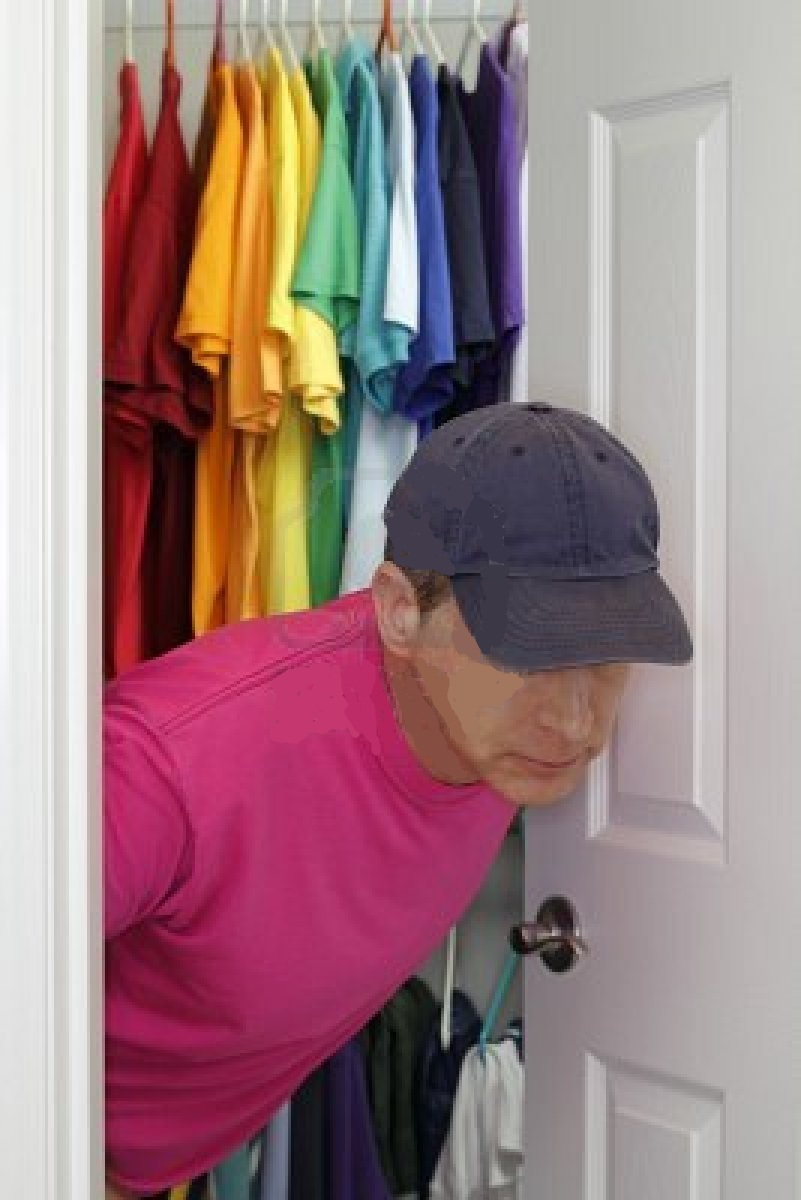
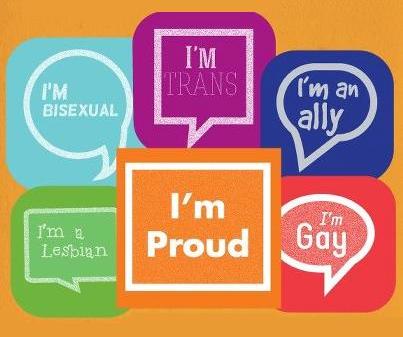
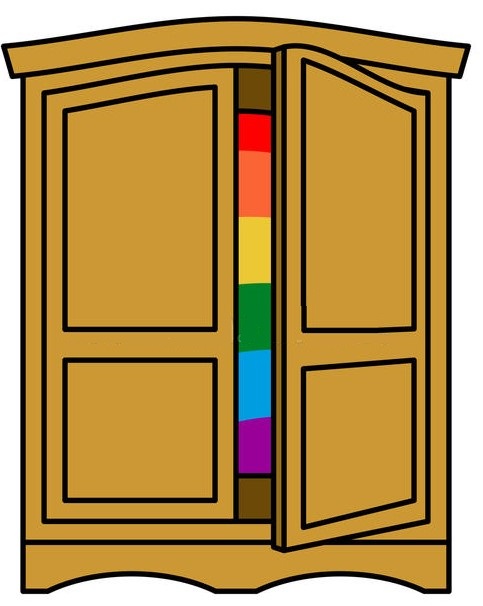
All the LGBTQ Celebrities Who Have Come Out in 2025
Untold Story Behind First National Coming
Out Day
Eugene Levy Shares When Son Dan Levy Came
Out to Him
Pete Buttigieg Helps 9-Year-Old Boy Come Out
Carl Nassib Reveals How Losing His Gay
Uncle Empowered Him to Come Out
Ian McKellen Encourages Queer Celebs to
Come Out
Best Coming Out Scene
Coming Out, In Their Own Words: Stories of Pride and
Courage
National Coming Out Day: A Brief History
Thomas Sanders: I'm Gay
Ricky Martin Reflects on His Decision to Come Out
Publicly as Gay
Barry Manilow Explains Why He Waited Almost 40 Years to
Come Out as Gay
Jason Mraz: Finding New Acceptance for His Sexuality
During His Divorce
Coming Out as an LGBTQ Person: What is it Like?
The Coming Out
Process
I
came out to my sister in a moment of anger. It started a
domino effect. I was tired of living a lie."
-Stephen
Lewis
The term
“coming out” refers to the life-long process in
developing a positive identity as a gay, lesbian,
bisexual, or transgender person. It is not something
that just happens one day. It is an ongoing
process of several steps. First, the person must accept
him/herself, and be somewhat comfortable with the fact
he/she is gay. Next, the person usually tells his/her
closest friend or group of friends to “test” how
comfortable they might be with disclosure. Another step
is when the person might find a partner or start dating
someone. Then come the most difficult step, in many
cases, when the person decides to tell his/her parents,
other family members, or employer.
This process is very long and difficult struggle for
many people since they have to confront many opposing
ideas and homophobic attitudes. Many people first need
to struggle with misinformation and stereotypes that are
taught them while growing up. Before someone can feel
good about who he/she is, the person will need to
challenge his/her own attitudes and move from wherever
the person is on the homophobic continuum, which might
include feelings of repulsion, pity, and/or tolerance,
to feelings of appreciation and admiration. After many
years of painful work to develop a positive identity and
attitude, many will then decided whom to tell that they
are gay/lesbian/bisexual/transgender.
Coming Out Video: Finding Joy in Difference
Hayley Kiyoko: Coming Out and Loving Yourself
Reaction All Parents Should Have When Their Child Comes
Out
After You Come Out: LGBTQ Starter Kit
The Health Benefits of Coming Out of the Closet
LGBTQ People Share Advice They'd Give
Themselves Before Coming Out
Celebrating LGBTQ Pride in the Closet
Essential LGBTQ Films to Watch When You’re Ready to Come
Out
Ellen Staffers: Coming Out Stories
Video: Coming Out Tips
Having Pride
“I was
just done. It’s so toxic to just be hiding. It becomes
so consuming without you even knowing it’s consuming
you. You become so complacent in this reality you
create. It’s like a bucket, and it’s filling up and
filing up and filling up – and finally it just spills
over. And I felt guilty for not being out for the LGBTQ
community. I was like, Dude, just say you’re gay.
For me, it was a great opportunity to be honest, to
share certain elements of the pain that I went through.
The reality is, there are very few young people out as
actors, so I was hoping to speak to a lot of the issues
so it wouldn’t just seem like, Hey, look, I’m gay."
-Ellen
Page, Actor
"I’ve come
to realize it is better, both for me and for the people
I care about, including my fans, to live life
authentically than to live a life never accepting who I
truly am."
-Shinjiro
Atae , Japanese Pop Star
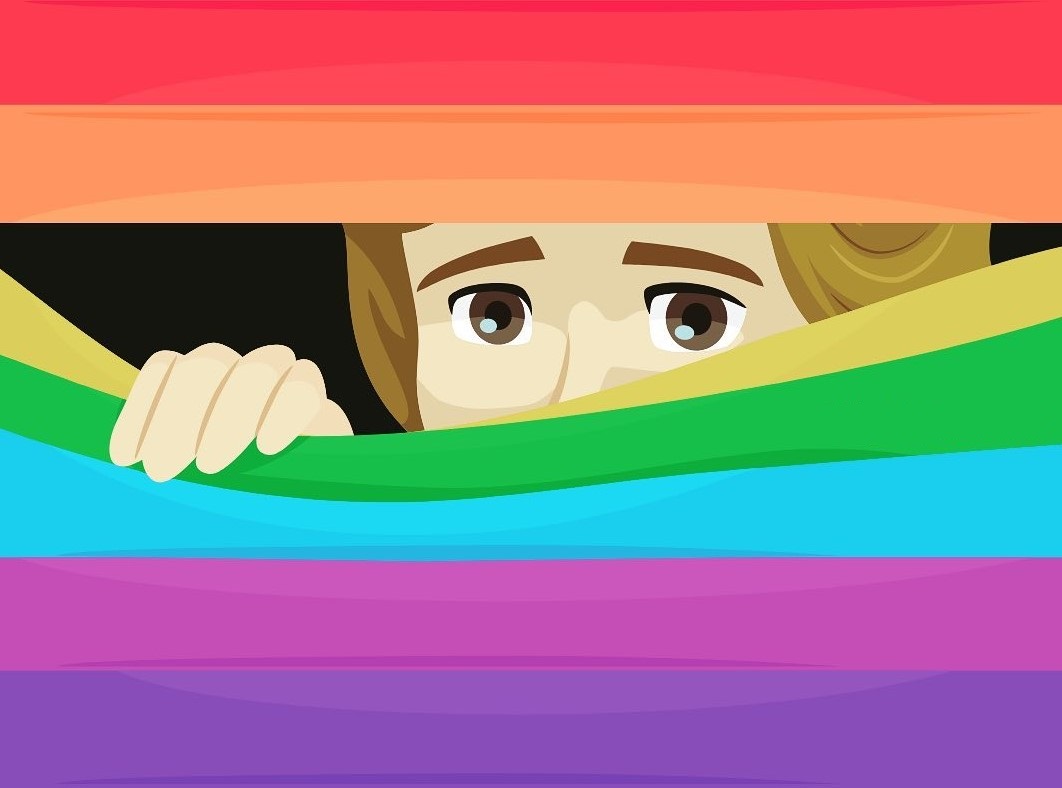
Untold Story Behind First National Coming
Out Day
David Archuleta’s Coming Out Story
LGBTQ Celebrities Who Came Out Later in
Life
Former Disney Stars Who Have Come Out As
LGBTQ
That's Just the Way I Am
Ian McKellen Encourages Queer Celebs to
Come Out
LGBTQ Guide to Coming Out Safely and Happily
Accepting Yourself: Being
Gay is Not Easy
Brian McNaught: What It's Like to Be in the Closet
Video: Coming Out Tips
Coming Out as an LGBTQ Person: What is it
Like?
Pete Buttigieg Helps 9-Year-Old Boy Come Out
DotGay Dictionary: What Does Coming Out
Mean?
Ellen DeGeneres: Crash Course in Coming Out
Coming Out to My Mormon Parents
Advocate Mag: Tips for Coming Out to Your Parents
Dairy Farmer's Advice to His Gay Son
Unexpected Reason Coming Out is Hard
Bradley Birkholz: How to
Come Out
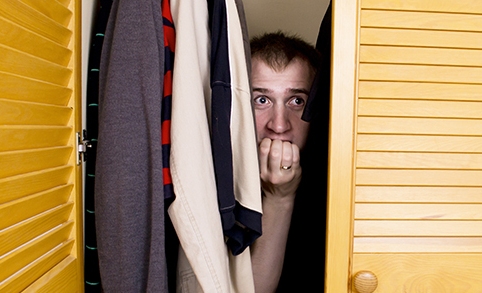
Coming Out Comments
"Coming
out isn't something you do once. It's a decision that we
make every single day of our lives. Whether it's for the
first time ever or the first time today, coming out can
be a challenging journey, but it's also a brave decision
to live authentically."
-Joni
Madison, interim president of Human Rights Campaign
Being "In
the Closet" has been described as "hiding your true
self," "denying your real identity," and "suppressing
your authenticity." To be closeted about your sexual
orientation is to restrain yourself from revealing an
important aspect of your nature.
What does it feel like to be closeted? It has been
described as "exhausting," "stressful," "a fulltime
job," and "keeping yourself in check at all times." It
takes a lot of time and energy to constantly hide
certain aspects of your self. Here are some collected
comments:
"When I was fully in the closet, I always felt the need
to make sure there was no possible way no one would ever
find out. That's why I'm happy I came out, even if it's
just a few people."
“It's a very exhausting task. The majority of my family
is aware of it (with the exception of distant
relatives), all of my friends, and one or two of my
co-workers. It's not a problem if people find out, or
come to terms with knowing. I tell who I want to tell,
and I don't tell who I don't want to tell.”
“Holding onto shame takes a lot of energy. And being in
the closet is about being in shame; not loving ourselves
and not believing that others will love us, or allow us
to be part of their lives. It takes a lot of energy to
maintain a counterfeit persona, to fit in when you
aren't being authentic. It's a lot easier being who you
really are.”
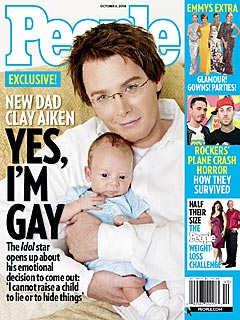
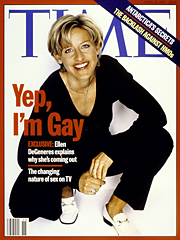
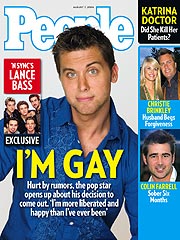
All the LGBTQ Celebrities Who Have Come Out in 2025
Coming Out: Living Authentically
I'm Coming Out: Song by Diana Ross
Eugene Levy
Shares When Son Dan Levy Came
Out to Him
Ian McKellen Encourages Queer Celebs to
Come Out
Coming Out, In Their Own Words: Stories of Pride and
Courage
National Coming Out Day: A Brief History
Thomas Sanders: I'm Gay
Ricky Martin Reflects on His Decision to Come Out
Publicly as Gay
Former Disney Stars Who Have Come Out As
LGBTQ
George Takei Says He Felt Guilty for Staying in the
Closet as Long as He Did
Coming Out as an LGBTQ Person: What is it Like?
Jason Mraz: Finding New Acceptance for His Sexuality
During His Divorce
Moving Beyond Coming Out
and Begin Inviting In
DotGay Dictionary: What Does Coming Out
Mean?
Ellen DeGeneres: It's Scary to Say I'm Gay Out Loud
Sally Fields' Son Talks About Coming Out
100 Different Ways to Come Out
What Not to Say When Your Child Comes Out as Transgender
Kate Austin: Coming Out and Getting Kicked Out
Coming Out: Animated Short
Television: Best Coming Out Scenes
LGBTQ People Share Advice They'd Give
Themselves Before Coming Out
"People don't actually come out. They let you in."
-Harvey
Guillen
“I feel like I am constantly watching my behavior around
others. For some reason I'm not comfortable telling
anyone I know just yet.”
“Every day is literally a struggle and I feel like I'm
being held back by being in the closet.”
“It does eat away at you consistently. You don't really
realize how much time and energy you spend trying to
hide yourself on a daily basis until you retrospectively
look at it once you've come out. Now that I’m out, I'm
not trying to hide it I feel a lot better.”
“Being in the closet definitely feels like being in a
full time job. It's because we're all reflecting on
something that we think might not be taken in a positive
light or be mocked or even worse, yet a lot of people
now will be supportive for the most part. Then there's
trying to not give away any clues that may be a bit
suspicious to everyone else. It's also such a major
personal thing that is rather sensitive at the same
time, so that doesn't help.”
“Being in the closet is a full time job. It's exhausting
sometimes. I just wish I could let myself relax and let
my guard down about it, but I can't.”
“I feel that I have to watch every word I say, or where
my eyes wander to. But right now in middle school kids
are jerks about that kinda stuff, so I am waiting until
High School until I tell anyone outside of my family.”
“I have to watch what I’m saying and doing constantly.
It’s so stressful.”
“At home, I have to constantly be careful with my
internet browser, especially since I have nosy siblings
always in my space. And then when people talk about
their significant others, I have to try to sidestep the
question as to not bring attention to myself. Also,
having to hear people's annoying gay jokes is
frustrating because then I have to pretend that I don't
care or people will get suspicious.”
NY Times: Anderson Cooper's Coming Out Story
Coming Out Video: Alone Among Many
LGBTQ Celebrities Who Came Out Later in
Life
Essential LGBTQ Films to Watch When You’re Ready to Come
Out
Coming Out as an LGBTQ Person: What is it
Like?
After You Come Out: LGBTQ Starter Kit
Coming Out: Animated Short
Pete Buttigieg Helps 9-Year-Old Boy Come Out
LGBTQ Guide to Coming Out Safely and
Happily
Ellen Staffers: Coming Out Stories
Valuable Lessons We Learned From Coming Out
Elle Mills: My Coming Out Story
Video: Coming Out Tips
Television: Best Coming Out Scenes
Ellen Page: Why Being in
the Closet is Toxic
Ricky Martin on Coming Out to the World
Eduardo Sanchez-Ubanell: My Coming Out Story
Lipstick: Coming Out Story
Cami Petyn: Yup, I'm Gay

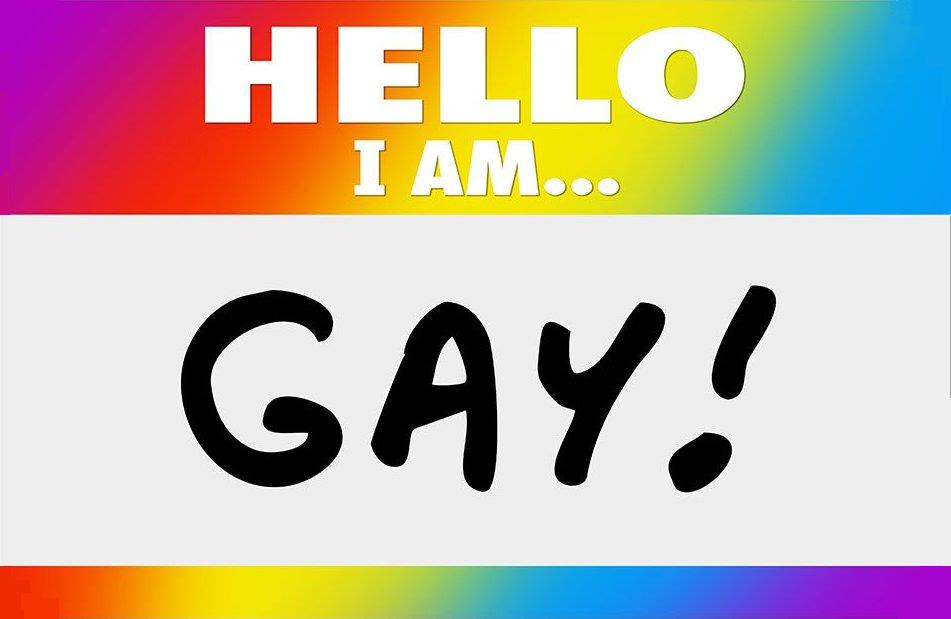
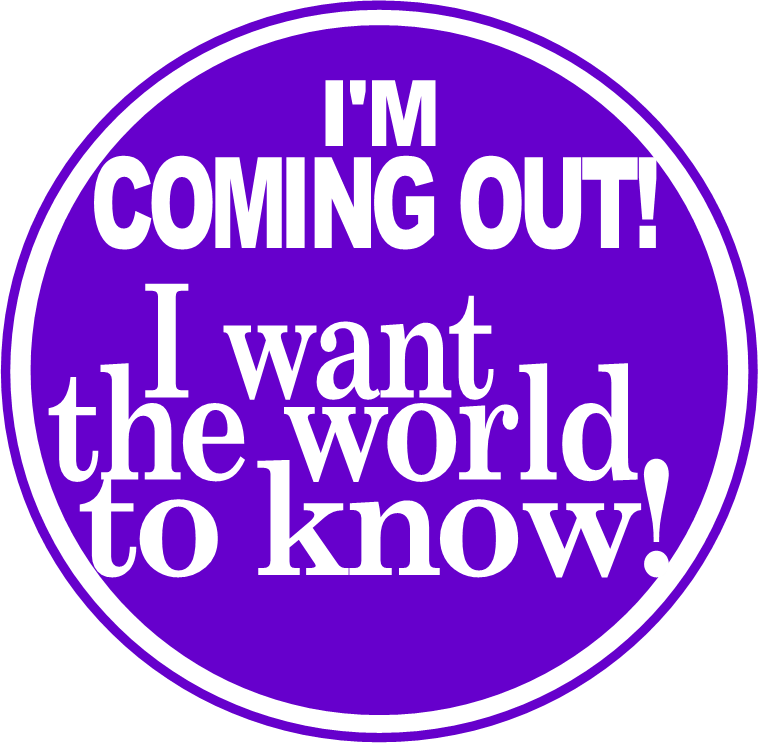
Why Is It
Important to Come Out?
Why do you always hear that it’s important to come out?
The reason is that it is very hard to love yourself
fully when you hide. And it’s very hard to love others
when you don’t love yourself. Therefore, the closet is
lonely. No one loves you there.
Authenticity is the foundation of all closeness. If we
want better relationships we must keep learning how to
be more authentic. And all of us want better
relationships.
There's a reason why they call the marches and
celebrations “Pride.” It is the opposite of shame. Shame
contributes to what keeps us feeling separate from
others and ourselves.
Coming out does take bravery. But without bravery we'd
still be huddling in windowless bars, running from
police, and marrying people we weren’t attracted to.
Once you have secured your economic and physical safety,
I urge you to get support for the step-by-step process
of coming out. It’s the best thing you can do for your
mental health and relationships. Books, good gay
friends, and gay-affirmative therapists can help you
with this.
[Source: Adam Blum, Gay Therapy Center]
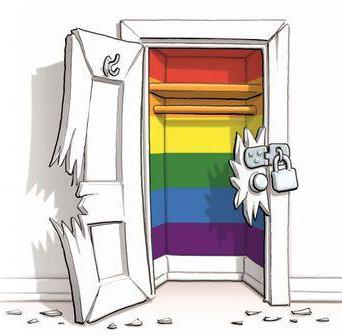
Celebrity Coming Out Stories
Coming Out Model
The Cass
Model (Vivian Cass, 1984) is one of the more well-known
and widely used models for coming out and LGB identity
development. It is very common for individuals to move
from one stage to another out of the listed order or
even be in more than one stage depending on the
situation. Individuals often move back and forth between
stages and are sometimes at a midway point between
stages. The model should be thought of more as a
continuum that people can move about freely. It should
also be noted that the primary participants in Cass’
original study were white gay men. Thus, this model
should not be assumed to be equally applicable to gay
and lesbian people of color, bisexual or transgender
people, and women.
1. Identity Confusion: "Could I be gay?" Person is
beginning to wonder if "homosexuality" is personally
relevant. Denial and confusion is experienced.
Task: Who am I? - Accept, Deny, Reject.
Possible Responses: Will avoid information about
lesbians and gays; inhibit behavior; deny homosexuality
("experimenting," "an accident," "just drunk"). Males:
May keep emotional involvement separate from sexual
contact; Females: May have deep relationships that are
non-sexual, though strongly emotional.
Possible Needs: Exploration of internal positive and
negative judgments. To be uncertain regarding sexual
identity. May find support in knowing that sexual
behavior occurs along a spectrum. Permission and
encouragement to explore sexual identity as a normal
experience (like career identity, and social identity)
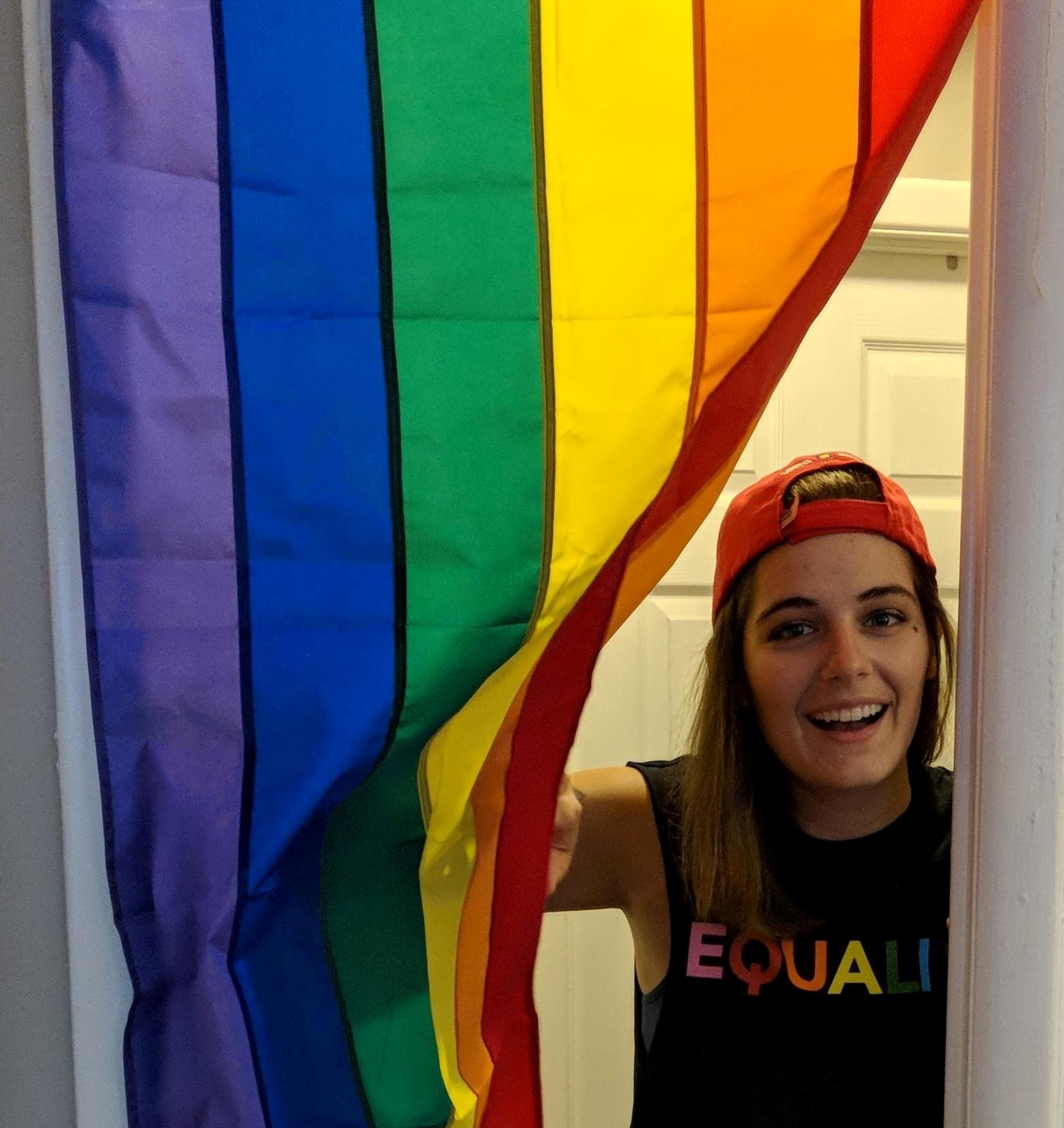
All the LGBTQ Celebrities Who Have Come Out in 2025
Untold Story Behind First National Coming
Out Day
David Archuleta’s Coming Out Story
Eugene Levy Shares When Son Dan Levy Came
Out to Him
Ian McKellen Encourages Queer Celebs to
Come Out
These Stars Came Out In 2023
Coming Out: Living Authentically
LGBTQ Celebrities Who Came Out Later in
Life
Coming Out, In Their Own Words: Stories of Pride and
Courage
National Coming Out Day: A Brief History
Ian McKellan Says Coming Out Was The Best Decision He's
Ever Made
I'm Coming Out: Song by Diana Ross
Thomas Sanders: I'm Gay
George Takei Says He Felt Guilty for Staying in the
Closet as Long as He Did
Lil Nas X Answers Kids' Questions About Coming Out
Demi Lovato: Discovering
the Depth of Her Queerness
Ricky Martin Reflects on His Decision to Come Out
Publicly as Gay
Barry Manilow Explains Why He Waited Almost 40 Years to
Come Out as Gay
Addison Rose Vincent:
Personal Reflection on Coming Out
Adam Rippon: Coming Out
and Gaining a Family
2. Identity Comparison: "Maybe this does apply to me."
Will accept the possibility that he/she may be gay.
Self-alienation becomes isolation.
Task: Deal with social alienation.
Possible Responses: Begins to grieve for losses he/she
may experience by embracing their sexual orientation.
May compartmentalize own sexuality. Accepts lesbian, gay
definition of behavior but maintains "heterosexual"
identity of self. Tells oneself, “I'm just in love with
this particular woman/man," etc.
Possible Needs: Important that the person develops own
definitions. Will need information about sexual
identity, LGB community resources, encouragement to talk
about loss of heterosexual life expectations. May need
to keep some "heterosexual" identity (it is not an all
or none issue).
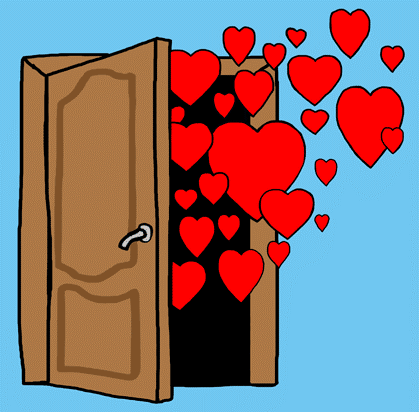
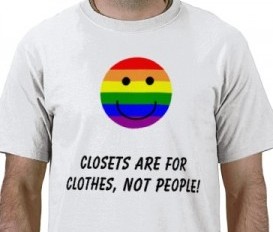
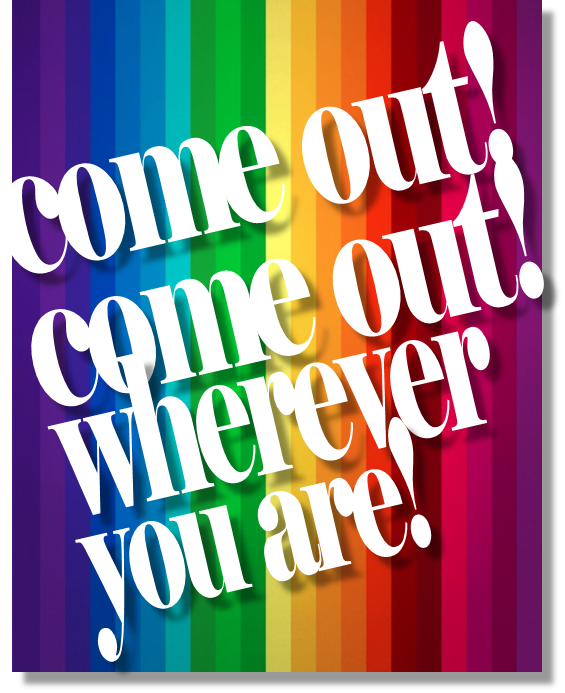
Untold Story Behind First National Coming
Out Day
100 Different Ways to Come Out
Former Disney Stars Who Have Come Out As
LGBTQ
Celebrating LGBTQ Pride in the Closet
Pete Buttigieg Helps 9-Year-Old Boy Come Out
Video: How Does it Feel to Come Out?
Having Pride
Essential LGBTQ Films to Watch When You’re Ready to Come
Out
Coming Out Video: I Told Them I'm Transgender
My Two Sons Came Out as Gay
Coming Out as an LGBTQ Person: What is it
Like?
Bradley Birkholz: How to
Come Out
Thomas Sanders: I'm Gay
Ellen Staffers: Coming Out Stories
Video: Coming Out Tips
Having Pride
3.
Identity Tolerance: "I'm not the only one." Accepts the
probability of being homosexual and recognizes sexual,
social, emotional needs that go with being lesbian and
gay. Increased commitment to being lesbian or gay.
Task: Decrease social alienation by seeking out lesbians
and gays.
Possible Responses: Beginning to have language to talk
and think about the issue. Accentuates difference
between self and heterosexuals. Seeks out lesbian and
gay culture (positive contact leads to more positive
sense of self, negative contact leads to devaluation of
the culture). May try out variety of stereotypical
roles.
Possible
Needs: Be supported in exploring own shame feelings
derived from heterosexism, as well as external
heterosexism. Receive support in finding positive
lesbian, gay community connections. It is
particularly important for the person to know community
resources.
4. Identity Acceptance: "I will be okay." Accepts,
rather than tolerates, gay or lesbian self-image. There
is continuing and increased contact with the gay and
lesbian culture.
Task: Deal with idea of no longer subscribing to
society's norm. Congruence between private and public
self.
Possible Responses: Accepts gay or lesbian self
identification. May compartmentalize "gay life."
Maintains less and less contact with heterosexual
community. Attempts to "fit in" within the gay and
lesbian community. Begins some selective disclosures of
sexual identity. More social coming out; more
comfortable being seen with groups of men or women that
are identified as "gay." More realistic evaluation of
situation.
Possible Needs: Continue exploring loss of heterosexual
life expectations. Continue exploring internalized
"homophobia." Find support in making decisions about
where, when, and to whom he/she self-discloses.
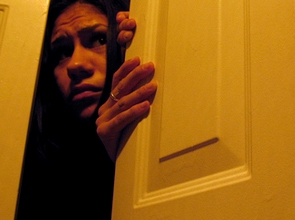
Coming Out: Animated Short
I'm Coming Out: Song by Diana Ross
The Health Benefits of Coming Out of the Closet
Ellen DeGeneres: It's Scary to Say I'm Gay Out Loud
Video: How Does it Feel to Come Out?
Jason Mraz: Finding New Acceptance for His Sexuality
During His Divorce
Lance Bass on the Challenges of Coming Out
How to Respond When Someone Comes Out to You
LGBTQ Guide to Coming Out Safely and
Happily
Video Short: Coming Out of the Closet
5. Identity Pride: "I've got to let people know who I
am!" Immerses self in gay and lesbian culture. Less and
less involvement with heterosexual community. Us vs.
Them quality to political/social viewpoint.
Task: Deal with incongruent views of heterosexuals.
Possible Responses: Splits world into "gay" (good) and
"straight" (bad). Experiences disclosure crises with
heterosexuals as he/she is less willing to "blend in."
Identifies gay culture as sole source of support.
Possible Needs: Receive support for exploring anger
issues. Find support for exploring issues of
heterosexism. Develop skills for coping with responses
to disclosure of sexual. Resist being defensive.
6. Identity Synthesis: Develops holistic view of self.
Defines self in more than just terms of sexual
orientation.
Task: Integrate gay and lesbian identity so that instead
of being the identity, it is on aspect of self.
Possible Responses: Continues to be angry at
heterosexism, but with decreased intensity. Allows trust
of others to increase and build. Gay and lesbian
identity is integrated with all aspects of "self." Feels
all right to move out into the community and not simply
define space according to sexual orientation.
[Source: Vivian Cass, Homosexual Identity Development,
1979 and Susan Young, SIUC, 1995]
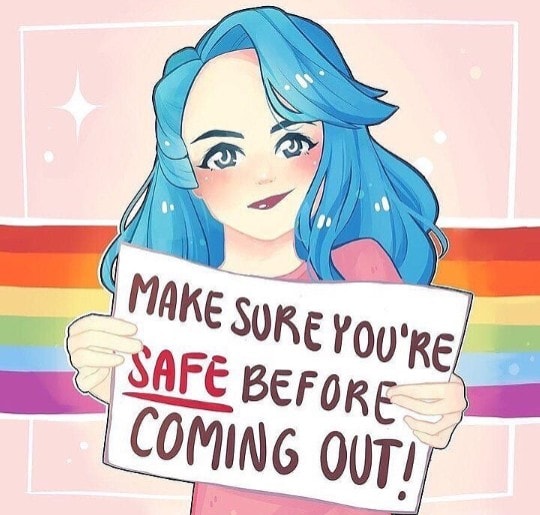
Coming Out at Work
Video: Coming Out Tips
David Archuleta’s Coming Out Story
Eugene Levy Shares When Son Dan Levy Came
Out to Him
Ian McKellen Encourages Queer Celebs to
Come Out
LGBTQ Celebrities Who Came Out Later in
Life
12 People Who Need to Know You're Gay
Reaction All Parents Should Have When Their Child Comes
Out
Stages of Coming Out
Video Story: 13 Year Old Comes Out to Classmates
Having Pride
Coming Out, In Their Own Words: Stories of Pride and
Courage
National Coming Out Day: A Brief History
Coming Out as an LGBTQ Person: What is it Like?
Internalized
Homophobia
Learning to love yourself....
A few months after coming out, I found myself in my
first relationship. It happened so quickly, like a
whirlwind. Our first kiss felt magical—fireworks. For
the first time, all the corners, edges, and fragmented
pieces of my heart and soul seemed to align perfectly,
like a thirty-three year old puzzle finally solved.
I felt authentic. Free.
But one evening it all changed.

After three months of dating, my boyfriend and I were
standing in line at a popular Salt Lake City restaurant.
We were holding hands, waiting for our table, when it
happened.
A group of people from my old life—the life where I
prayed daily to be “fixed” and tried to pass as
straight—walked toward us. My eyes locked onto theirs.
Without hesitation, I dropped my boyfriend’s hand. I
instinctively stepped away from him, putting space
between us, as if that distance could somehow hide him
from them. Everything inside of me needed to make our
relationship invisible.
It was in that moment I realized something: I wasn’t
ready.
Even though I knew I was gay—I wasn’t ready to own it. I
wasn’t ready to fully embrace it. I was still too caught
up in seeking approval, too consumed by fear of
rejection, too worried about fitting into a world I no
longer belonged to.
In tears, I ended the relationship the next morning. I
felt defeated.
My boyfriend deserved more—he deserved to be celebrated,
not hidden. He deserved to be an equal and validated,
not treated as someone I could only love in private when
I felt safe.

What I was experiencing was internalized homophobia.
It’s was real. It’s powerful. And overcoming it often
requires time, effort, and often professional
intervention.
When I finally learned to love myself, I became capable
of loving others. When I accepted who I was, I created
space for others to accept me, too. And when I stopped
living for the approval of others, I began to truly
love.
Stumbling and learning and growing is part of this
coming out process. That’s the beauty of growth.
Love is worth it. You are worth it. Do the work and
build something special. Do it out loud.
[Source: Latter Gay Stories, December 2024]
Coming Out: Animated Short
LGBTQ People Share Advice They'd Give
Themselves Before Coming Out
Daniel Beckman: My Coming Out Story
Ian McKellen Encourages Queer Celebs to
Come Out
Coming Out: Parents Guide to Supporting Your Gay Teen
Video: How Does it Feel to Come Out?
Essential LGBTQ Films to Watch When You’re Ready to Come
Out
Pete Buttigieg Helps 9-Year-Old Boy Come Out
LGBTQ Celebrities Who Came Out Later in
Life
Ellen DeGeneres: Crash Course in Coming Out
Accepting Yourself: Being
Gay is Not Easy
Lipstick: Coming Out Story
Video Short: Coming Out of the Closet
Coming Out:
Affirmation and well-being
The
Importance of Coming Out as Gay or Lesbian
Coming out as gay or lesbian is a deeply personal and
often transformative act that holds great emotional,
psychological, and social significance. For many
individuals, it marks a turning point toward living a
more authentic and fulfilling life. While the process
can be challenging, especially in environments where
LGBTQ identities are stigmatized or misunderstood,
coming out remains a powerful declaration of
self-acceptance and courage.
One of the most important reasons for coming out is the
mental and emotional well-being it can bring. Living in
secrecy or fear can take a heavy toll, leading to
anxiety, depression, and a sense of isolation. When
individuals come out, they often experience relief and a
stronger sense of identity, as they no longer have to
hide a fundamental part of who they are. This openness
allows for deeper and more honest relationships with
friends, family, and partners.

Untold Story Behind First National Coming
Out Day
Accepting Yourself: Being
Gay is Not Easy
Steven Universe: Everyone is Gay!
Coming Out as an LGBTQ Person: What is it Like?
LGBTQ People Share Advice They'd Give
Themselves Before Coming Out
Video Short: Coming Out of the Closet
Ellen DeGeneres: Crash Course in Coming Out
TED Talk: Why We Need Another Coming Out Story
Thomas Sanders: I'm Gay
Coming out also plays a crucial role in visibility and
social progress. Each person who comes out contributes
to breaking down stereotypes and normalizing diverse
sexual orientations. This visibility helps others in the
LGBTQ community feel less alone and can inspire those
still struggling with their identity. It also educates
and challenges broader society, encouraging empathy and
reducing discrimination.
While coming out is a personal choice and not always
safe or possible for everyone, when individuals are able
to do so, it can be an empowering act that benefits both
themselves and the community. It affirms the right to
live openly and proudly, reinforcing the fundamental
principle that everyone deserves to be loved and
respected for who they truly are.
Barry Manilow Explains Why He Waited Almost 40 Years to
Come Out as Gay
Science: Coming Out of the Closet is Good for Your
Health
Elle Mills: My Coming Out Story
DotGay Dictionary: What Does Coming Out
Mean?
Sally Fields' Son Talks About Coming Out
Coming Out Video: Finding Joy in Difference
Taylor Phillips: My Coming Out Story
Kate Austin: Coming Out and Getting Kicked Out
Steven Universe: Everyone is Gay!
Ricky Martin on Coming Out to the World
I'm Coming Out
I'm coming out, I want the world to know, Got to let it
show
There's a new me coming out, And I just have to live
And I wanna give, I'm completely positive
I think this time around, I am gonna do it, Like you
never knew it, Oh I'll make it through
The time has come for me, To break out of the shell, I
have to shout, I'm coming out
I've got to show the world, All that I wanna be, And all
my abilities
There's so much more to me, Somehow I'll have to make
them
Just understand, I got it well in hand, And oh how I've
planned
I'm spreading love, There is no need to fear, And I just
feel so good, Every time I hear
I'm coming
out, I want the world to know, Got to let it show
[Source: Song by Diana Ross]
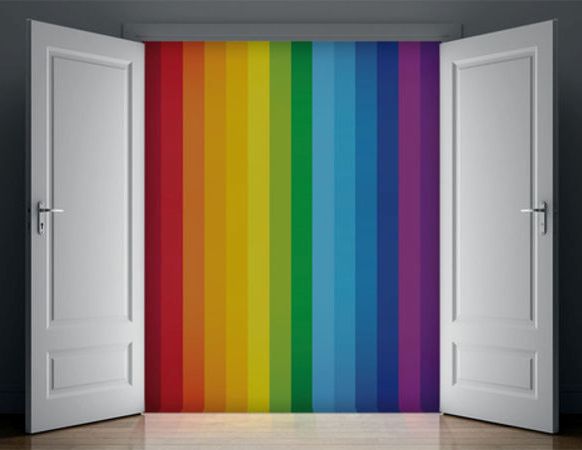
Celebrating LGBTQ Pride in the Closet
Eugene Levy Shares When Son Dan Levy Came
Out to Him
Former Disney Stars Who Have Come Out As
LGBTQ
Coming Out to My Mormon Parents
David Archuleta’s Coming Out Story
What Not to Say When Your Child Comes Out as Transgender
Coming Out Video: Gaining Confidence From God
LGBTQ Guide to Coming Out Safely and
Happily
Coming Out as an LGBTQ Person: What is it
Like?
Alexander Jimenez: My Coming Out Story
Jackson Bird: Time is an Amazing Healer
Preparing
Yourself to Come Out
Have a
serious talk with yourself. Clarify specifically what
you hope will happen as a result of disclosure and what
you expect will really happen. Without a clear purpose,
your presentation of self may be a scary and risky
experience without an attainable objective.
Select the particular person or persons to whom you wish
to disclose. Tell the person(s) that you want to share
something important, that you want to have a serious
personal conversation. Although you cannot make someone
ready to hear what you have to say, you can create a
situation in which the other person feels ready for a
serious personal conversation.
Select a time and a place. Avoid situations that may
result in a lack of time or privacy. Neither you nor the
other person can interact honestly and fully if he or
she does not feel there is enough situational privacy.
Coming out is a continuing process, not a hit and run
bombing mission or something done well in a crowded
public place.
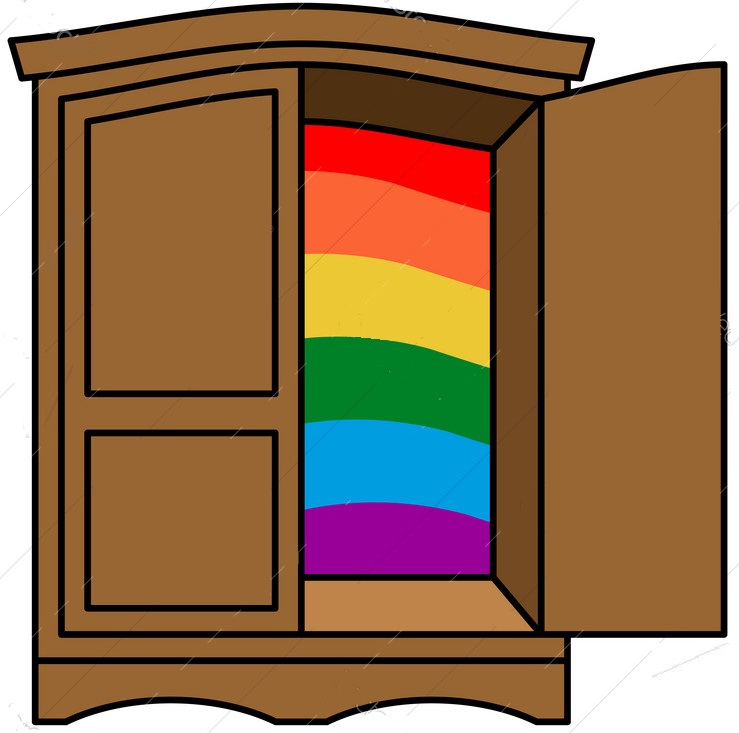 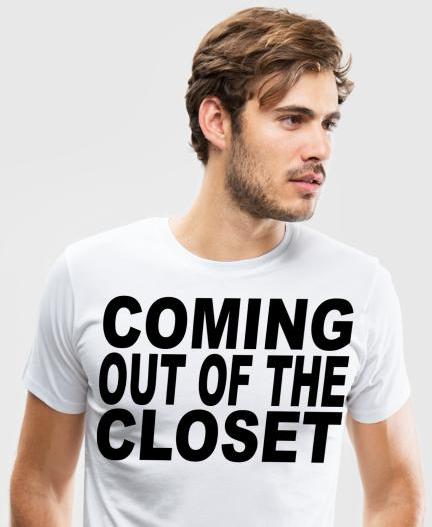
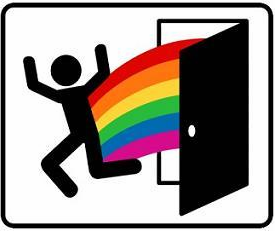
Coming Out: Animated Short
Ian McKellen Encourages Queer Celebs to
Come Out
LGBTQ Celebrities Who Came Out in 2022
Coming Out as an LGBTQ Person: What is it
Like?
LGBTQ Guide to Coming Out Safely and
Happily
Wikipedia: Coming Out
Essential LGBTQ Films to Watch When You’re Ready to Come
Out
Video: How Does it Feel to Come Out?
LGBTQ Celebrities Who Came
Out in 2020
Lesbian Coming Out at 40
Lance Bass on the Challenges of Coming Out
How to Respond When Someone Comes Out to You
LGBTQ Celebrities Who Came Out Later in
Life
Pete Buttigieg Helps 9-Year-Old Boy Come Out
Keep your disclosure clean. That is, don’t clutter it up
with attempts to punish, cause guilt or gain sympathy.
Talk about yourself, your feelings and your experiences.
Stay with “I” statements. Being LGBTQ is no one’s fault.
What you as a person decide to do with your LGBTQ
identity is your responsibility.
Allow time for surprise reactions. It is doubtful that
you came into self-acceptance overnight. Asking that
another accept and appreciate you faster than you have
learned to appreciate yourself is self-defeating.
Be ready to clearly identify learning resources that are
available to the person. For example, books, films,
magazine articles, journals, counselors etc. As your
learning has taken time and energy, the “significant
other” will need time to digest your disclosure and
ingest a new understanding.
An important step, certainly not the last priority, is
the setting up of a LGBTQ support system. Participating
in a gay, lesbian, bisexual, and transgender support
group can help prepare you for disclosure to significant
others in your life. It can also provide you with
support and understanding during and after the
disclosure. If this type of group is not available to
you, having supportive friends, teachers, relatives,
etc. is also a good source of support for the coming out
process.
Coming out in our society is an endless process and
being proud of being LGBTQ requires constant affirmation
of self.
Brian McNaught: What It's Like to Be in the Closet
Bradley Birkholz: How to
Come Out
Carl Cunard: My Coming Out Story
I'm Coming Out: Song by Diana Ross
All Things Queer: Coming Out Stories
Video Story: 13 Year Old Comes Out to Classmates
Advocate Mag: Tips for Coming Out to Your Parents
DotGay Dictionary: What Does Coming Out
Mean?
Valuable Lessons We Learned From Coming Out
Coming Out Video: I Told Them I'm Transgender
Video: How Does it Feel to Come Out?
Reasons Why You
Must Come Out of the Closet
--Keeping something so important a secret is bad for
you.
--Coming out empowers those who can't
--In a world filled with anti-LGBTQ leaders pushing for
anti-LGBTQ policies, coming out is a political act
--Dating becomes a lot easier
--Your sex life becomes a lot easier
--Coming out respects the hard work done by LGBTQ
activists who came before you
--Coming out gives you the most honest picture of life
--It's important to push yourself to do difficult things
--Coming out is the first step to appreciating your
cultural inheritance
--Coming out will reveal your allies
--When you come out, your fellow LGBTQ people will
become less terrifying in your mind
--Coming out means you get to tell your story
[Source: Alexander Cheves, Advocate]
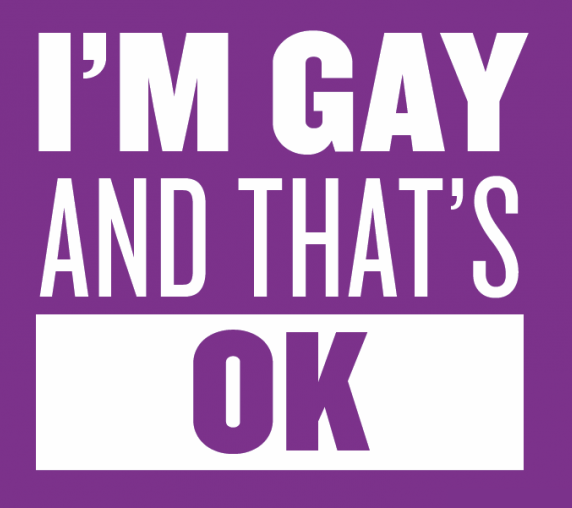
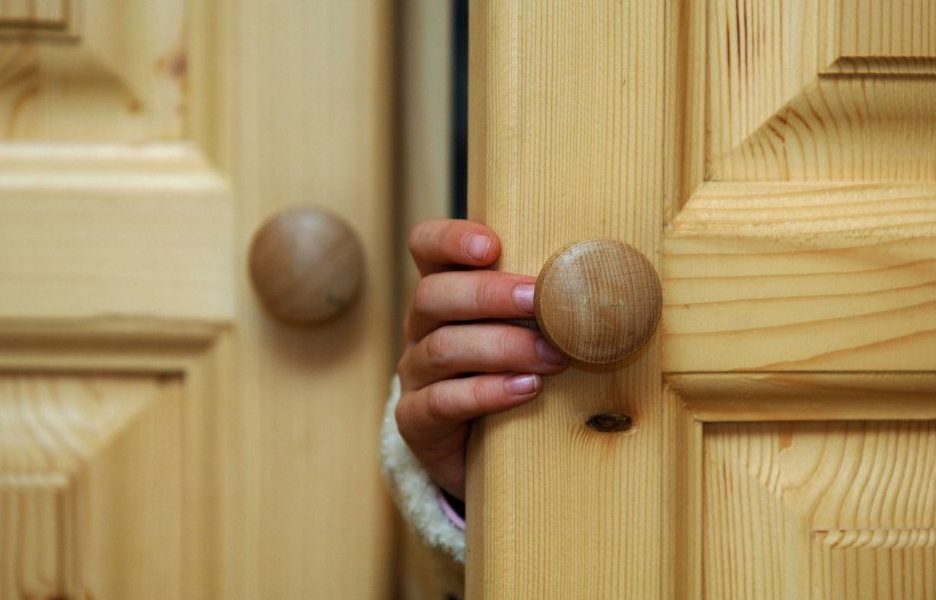
Untold Story Behind First National Coming
Out Day
Science: Coming Out of the Closet is Good for Your
Health
Brian McNaught: What It's Like to Be in the Closet
Video: Coming Out Tips
Coming Out, In Their Own Words: Stories of Pride and
Courage
National Coming Out Day: A Brief History
All Things Queer: Coming Out Stories
My
Parents Think I'm Gay, But I Am Not
The Health Benefits of Coming Out of the Closet
Coming Out Again and Again
Video Story: 13 Year Old Comes Out to Classmates
Coming Out Video: A Cadet With Questions
LGBTQ People Share Advice They'd Give
Themselves Before Coming Out
Jason Mraz: Finding New Acceptance for His Sexuality
During His Divorce
My
Coming Out Story + Advice
Steven Universe: Everyone is Gay!
Coming
Out to Your Parents
Are you sure about your sexual orientation and/or gender
identity? Don’t raise the issue unless you’re able
to respond with confidence to the question “Are you
sure?” Confusion on your part will increase your
parents’ confusion and decrease their confidence in your
conclusions. If you do decide to come out before you are
certain, you may have your parents’ support in your
period of confusion, but you may also have pressure and
their homophobia to contend with.
Are you comfortable with your sexual orientation and/or
gender identity? If you’re wrestling with guilt
and periods of depression, you may be better off waiting
to tell your parents. Coming out to them may require
tremendous energy on your part; it will require a
reserve of positive self-image.
Do you have support? In the event that your
parents’ reaction devastates you, there should be
someone or a group that you can confidently turn to for
emotional support and strength. Maintaining your sense
of self-worth is critical.
Are you knowledgeable about homosexuality and gender
issues? Your parents will probably respond based
on a lifetime of information from a homophobic society.
If you’ve done some serious reading on the subject,
you’ll be able to assist them by sharing reliable
information and research.

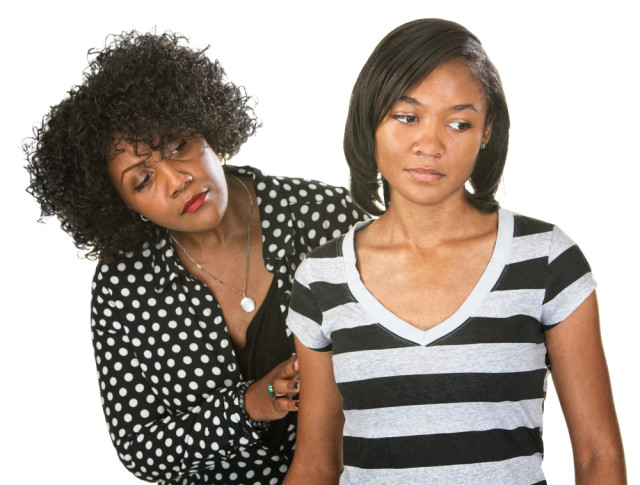
My
Parents Think I'm Gay, But I Am Not
Bradley Birkholz: How to
Come Out
Former Disney Stars Who Have Come Out As
LGBTQ
Television: Best Coming Out Scenes
Thomas Sanders: I'm Gay
David Archuleta’s Coming Out Story
TED Talk: Why We Need Another Coming Out Story
NY Times: Anderson Cooper's Coming Out Story
Accepting Yourself: Being
Gay is Not Easy
Coming Out Video: Alone Among Many
TED Talk: Upside of Disclosing Your Sexual Identity
Ian McKellen Encourages Queer Celebs to
Come Out
What’s the emotional climate at home? If you have
the choice of when to tell, consider the timing. Choose
a time when they’re not dealing with such matters as the
death of a close friend, pending surgery, or the loss of
a job.
Can you be
patient? Your parents will require time to deal
with this information if they haven’t considered it
prior to your sharing.
What’s your motive for coming out now? Hopefully,
it is because you love them and are uncomfortable with
the distance you feel. Never come out in anger or during
an argument, using your sexuality as a weapon.
Do you have available resources? Homosexuality is
a subject most non-gay people know little about. It can
help to have available at least one of the following: a
book addressed to parents, a contact for the local or
national Parents and Friends of Lesbian and Gays (PFLAG), the
name of a non-gay counselor who can deal fairly with the
issue.
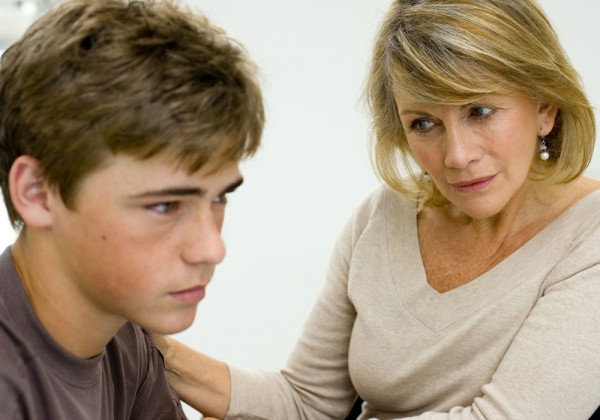
Eugene Levy Shares When Son Dan Levy Came
Out to Him
Pete Buttigieg Helps 9-Year-Old Boy Come Out
All Things Queer: Coming Out Stories
My
Parents Think I'm Gay, But I Am Not
LGBTQ Celebrities Who Came Out Later in
Life
I'm Coming Out: Song by Diana Ross
Travis Bryant: My Coming Out Story
Coming Out Again and Again
Video Story: 13 Year Old Comes Out to Classmates
Talking to Kids About Coming Out
My Two Sons Came Out as Gay
Coming Out Video: A Cadet With Questions
Celebrating LGBTQ Pride in the Closet
My
Coming Out Story + Advice
Are you financially dependent on your parents? If
you suspect they are capable of withdrawing college
finances or forcing you out of the house, you should
consider how to best manage the possible consequences of
coming out.
What is your general relationship with your parents?
If you’ve gotten along well and have always known their
love and shared your love for them in return then it is
more likely they’ll be able to deal with the issue in a
positive way.
What is their moral/societal view? Take into
consideration what your parents generally believe is
morally and socially acceptable when deciding whether or
not they will be accepting of your sexuality.
Is this your decision? Not everyone should come
out to their parents. Don’t be pressured into it if
you’re not sure you’ll be better off by doing so.
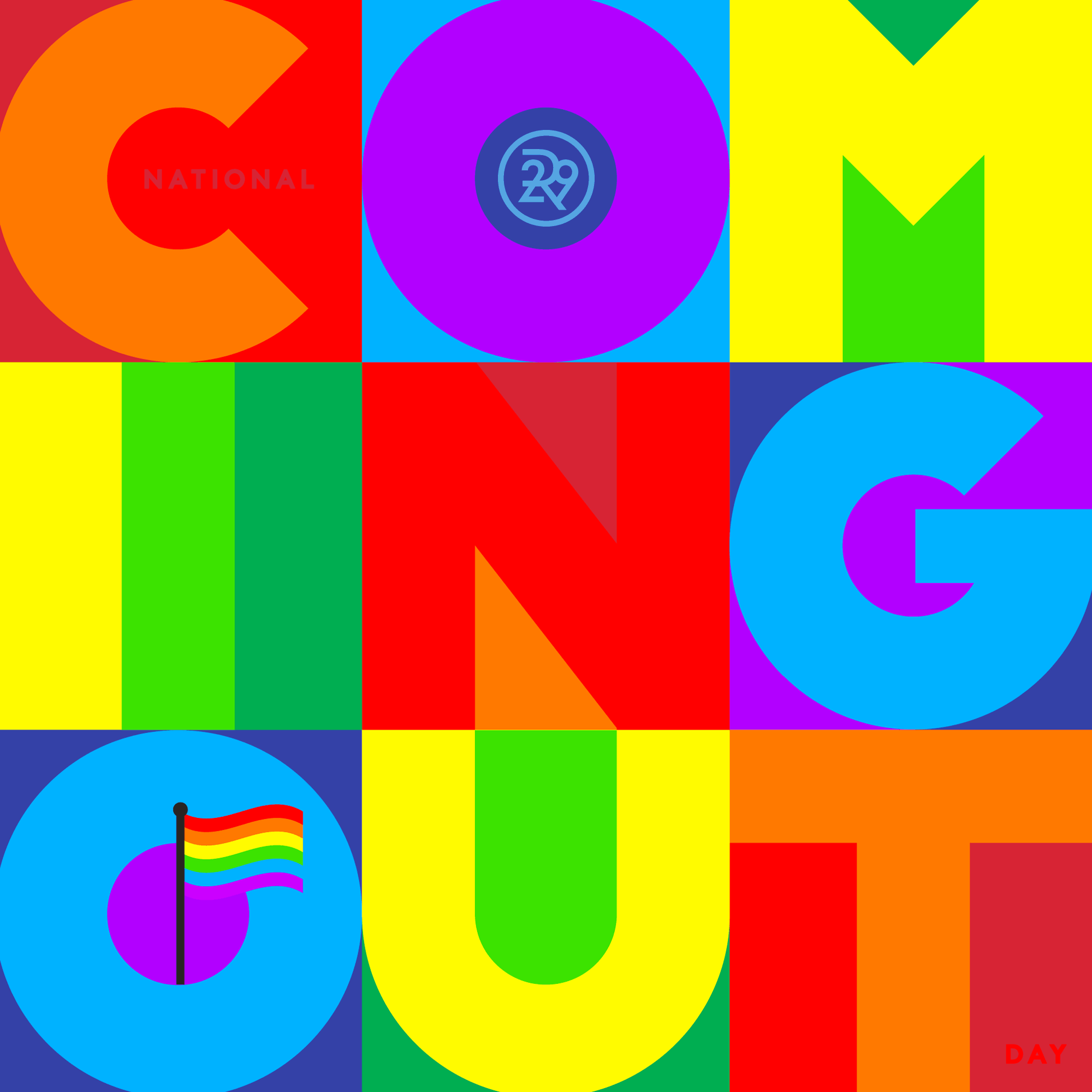
Wikipedia: Coming Out
Coming Out as an LGBTQ Person: What is it
Like?
Ellen DeGeneres: It's Scary to Say I'm Gay Out Loud
Best Coming Out Scene
Coming Out Video: Finding Joy in Difference
My Two Sons Came Out as Gay
Having Pride
Coming Out as an LGBTQ Person: What is it Like?
Coming Out: Animated Short
Advocate Mag: Tips for Coming Out to Your Parents
100 Different Ways to Come Out
The Importance
of Coming Out
Since immersing myself in the gay community, I have
encountered significant controversy regarding coming
out. For some, it is a wickedly brave performance of
self-love and acceptance. For others, it seems to
further separate the queer community from the straight
community After all, straight people don't have to come
out. Personally, my coming out experience was perhaps
the most celebratory and rewarding day of my life. It
encapsulated my confidence in accepting myself as gay,
and thrusted me into a new and open chapter of my life
-- one which I still happily live in today! For years I
have merely listened to the debate, always keeping my
mouth shut. But now's the time for me to break that seal
of silence and give my two cents on why all queer folk
should come out.
You're not yourself when you're in the closet. It's
simple. You're not your entire self when you're in the
closet. Regardless of how you define yourself, our
sexuality is a major aspect of our life. It affects
family, friends and surrounding conversation. Being in
the closet fuels white lies. You're constantly making up
excuses or stories. Maybe you're even acting differently
just to ward off suspicion. Nonetheless, no matter how
much you try to convince yourself, you cannot be your
true self until you're out of the closet.

TED Talk: Upside of Disclosing Your Sexual Identity
Why is it Still so Difficult to be Out and Proud?
Video: How Does it Feel to Come Out?
Stages of Coming Out
Video Story: 13 Year Old Comes Out to Classmates
Having Pride
Coming Out: Animated Short
TED Talk: Why We Need Another Coming Out Story
Coming Out: Parents Guide to Supporting Your Gay Teen
Coming out
is invigorating. Coming out makes you stronger. Because
think about it, the level of confidence you must attain
before making the big step is incredible. It's like
climbing a mountain, however there is no peak -- only a
plateau. Once you come out, that confidence doesn't go
away. In fact, it will be applied to all aspects of your
life -- not just your sexuality. You will be more
confident at work, in school or wherever life may take
you.
You'll inspire other people. I remember why I came out.
It was senior year of high school and some kid had just
come out -- like not even a month before I did. He did
it on Facebook. I remember reading through the comments
and being blown away by positivity, love and support. I
was jealous, and I was ready. Coming from a relatively
accepting community, I knew it would go well, especially
because I'd be following in someone's footsteps. So, I
took the leap and reaped countless rewards. Since then,
I have received many messages on Facebook, Instagram and
Twitter seeking advice. Every once in a while I get to
help someone in need -- just like the kid at the high
school did for me. I got to be a role model.
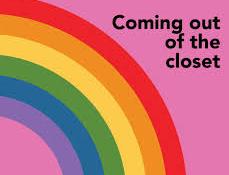
Those are
only three of the countless reasons to come out -- but
to me, they are the most important. Coming out allows
you to be yourself, while giving you an incredible
newfound confidence. But most importantly, coming out
contributes to a chain reaction. Your coming out story
may inspire someone just embarking on their journey of
self love and acceptance. And if you're to stay in the
closet, others are just going to follow in those
footsteps. Be out. Be proud. And be yourself.
[Source: Cole Vincent, Miami University, Odyssey, June
2016]
Why is it Still so Difficult to be Out and Proud?
Accepting Yourself: Being
Gay is Not Easy
I'm Coming Out: Song by Diana Ross
Coming Out: Animated Short
NY Times: Anderson Cooper's Coming Out Story
Kate Austin: Coming Out and Getting Kicked Out
DotGay Dictionary: What Does Coming Out
Mean?
That's Just the Way I Am
Coming Out Video: Alone Among Many
Valuable Lessons We Learned From Coming Out
Video: Coming Out Tips
The Health Benefits of Coming Out of the Closet
Video: How Does it Feel to Come Out?
Having Pride
Coming Out Video: I Told Them I'm Transgender

How
Coming Out Can Change Your Life
Coming out of the closet has risks and benefits. What's
your best decision?
Imagine living in a closet. I would think it feels
lonely, there is little freedom to move around, and the
chances of meeting someone you can share your life with
becomes much less likely, unless they open the door. The
term “coming out of the closet” is very apropos in that
the real life experience of those living in the closet
is stifling. We all know (and don’t know) people who
live in constant fear of being tagged as gay.
Professionals who are competent and normally in control
of their lives can become shaken and insecure if they
give away personal information that could lead someone
to conclude they are gay.
I have worked with individuals who not only hid their
sexuality at work, they also felt they were not able to
disclose their true selves at home. Imagine how
difficult it would be for you to feel so isolated.
Depression and anxiety are huge problems in the LGBTQ
community. Living a life where you feel that no one
truly knows you is devastating. A 2011 study conducted
by Social Psychology and Personality Science concluded
that coming out creates a much healthier mental
environment if it happens in a supportive setting.
Living the life you were meant to live openly and
authentically is always ideal. It will increase your
sense of self-worth and decrease stress. Unfortunately
for those who live in hostile environments, coming out
might make life even more difficult.

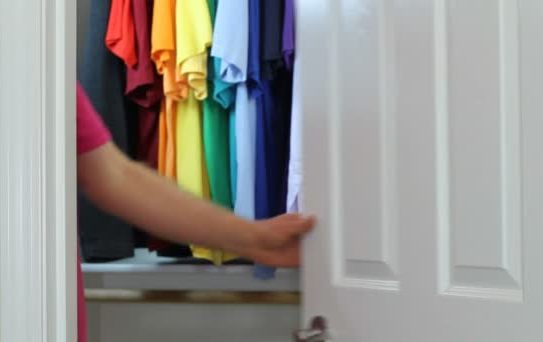
David Archuleta’s Coming Out Story
LGBTQ Celebrities Who Came Out Later in
Life
Kate Austin: Coming Out and Getting Kicked Out
Coming Out: Animated Short
LGBTQ Guide to Coming Out Safely and
Happily
Coming Out Again and Again
Elle Mills: My Coming Out Story
Coming Out Video: A Cadet With Questions
My
Parents Think I'm Gay, But I Am Not
Former Disney Stars Who Have Come Out As
LGBTQ
So the question for each individual has to be, “Who am I
safe to come out to and when?” The majority of gay
people may not be out in every part of their lives. If
one is not protected in their professional lives, they
may choose to be closeted at work but live a life
outside of work that includes a support system and
community of like-minded people. Some, on the other
hand, may live in a very conservative environment but
have a co-worker they trust and feel comfortable with.
It’s important for everyone to feel like part of a
community. Finding even one person with whom you can
feel safe will increase your chances of living longer
and being happy.
Fortunately, in many parts of the country laws
protecting LGBTQ people are finally being passed.
Teachers who have been teaching for years and have been
in a committed same-sex relationship can now (in some
states) become more comfortable about sharing
information with their colleagues and the parents of
their students. The problem is that for many it’s very
difficult to live in the closet most of their adult
lives and then easily step out into a life of being open
about disclosing who they are. At that point it’s all
about changing their internal dialogue and shedding the
years of both internal and external homophobia.
Coming out is a deeply personal decision and the
experience is as unique as every individual experiencing
it. Living in isolation and fear is a terrible burden
for anyone to bear. Seek out support you need. Work
through the obstacles and fears in your life that keep
you from taking whatever action you can in walking out
of that closet and closing the door.
[Source: Denise LaFrance, Your Tango]
Coming Out at Work
Video: Coming Out Tips
LGBTQ Guide to Coming Out Safely and
Happily
Ellen DeGeneres - Crash Course in Coming Out
12 People Who Need to Know You're Gay
Video Short: Coming Out of the Closet
Reaction All Parents Should Have When Their Child Comes
Out
Jacob Campbell: My Coming Out Story
That's Just the Way I Am
When
Someone Comes Out to You
What is someone comes out to you? How should you
respond?
Don’t
judge. Regardless of your own personal or moral belief
about LGBTQ people, keep in mind that the person has made
himself/herself vulnerable. Simply listen to the person.
Acknowledge them. Let them know that you heard what they
said and ask open-ended questions to show that you are
interested and care.
Recognize the trust. If someone voluntarily comes out to
you he/she is putting a lot of trust in you and has used
a lot of courage. It can be good to acknowledge that
courage and trust.

Wikipedia: Coming Out
Video: Coming Out Tips
Coming Out as an LGBTQ Person: What is it Like?
LGBTQ People Share Advice They'd Give
Themselves Before Coming Out
I'm Coming Out: Song by Diana Ross
Cami Petyn: Yup, I'm Gay
DotGay Dictionary: What Does Coming Out
Mean?
After You Come Out: LGBTQ Starter Kit
Ellen DeGeneres: It's Scary to Say I'm Gay Out Loud
That's Just the Way I Am
Match their words. Remember that this is about how they
identify. It is important to use the same language that
they use. If the person identifies himself/herself as
gay, then use the word “gay.” If he/she uses queer, then
use the word “queer.”
Mirror emotions. You should be mindful of their emotions
concerning coming out. If the person is happy, don’t
talk about how difficult it must be.
Don’t let sex be your guide. Don’t assume, just because
someone has had a same-sex sexual encounter, that the
person identifies as gay. Also don’t assume, just
because someone identifies as gay, that the person has
had a same-sex sexual encounter.
Maintain contact. Let the person know that they are
still important to you. You don’t need to change the way
you interact or how often you see the person in the
future.


Keep confidentiality. LGBTQ people face many forms of
discrimination and harassment in society. It is
important to make sure to never share a person’s
identity unless it is with someone he/she has told you
knows. A good rule of thumb is, “if your not sure, don’t
share.”
Give
resources. When someone comes out to you, it is possible
that he/she is already very knowledgeable about
resources, but he/she also might not know of any. Share
what resources you have and make an active effort to
learn about new useful resources.
Just listen. The most important thing you can do is to
listen. Being LGBTQ isn’t a problem that needs solving or
something that becomes easy to deal with given just the
right resource. LGBTQ identities are part of who people
are. When you listen to people tell you about their
identities, you learn more about who that person is.

Kate Austin: Coming Out and Getting Kicked Out
Lesbian Coming Out at 40
My
Parents Think I'm Gay, But I Am Not
Accepting Yourself: Being
Gay is Not Easy
Lance Bass on the Challenges of Coming Out
Coming Out: Animated Short
Video: How Does it Feel to Come Out?
Jason Mraz: Finding New Acceptance for His Sexuality
During His Divorce
Celebrating LGBTQ Pride in the Closet
Ricky Martin on Coming Out to the World
Lipstick: Coming Out Story
How to Respond When Someone Comes Out to You
Video Story: 13 Year Old Comes Out to Classmates
Ellen Staffers: Coming Out Stories
Sally Fields' Son Talks About Coming Out
Coming Out to My Mormon Parents
Having Pride
Coming Out Video: Finding Joy in Difference
Reaction All Parents Should Have When Their Child Comes
Out
Steven Universe: Everyone is Gay!

HOME
QUEER CAFE
│ LGBTQ Information Network │ Established 2017
|